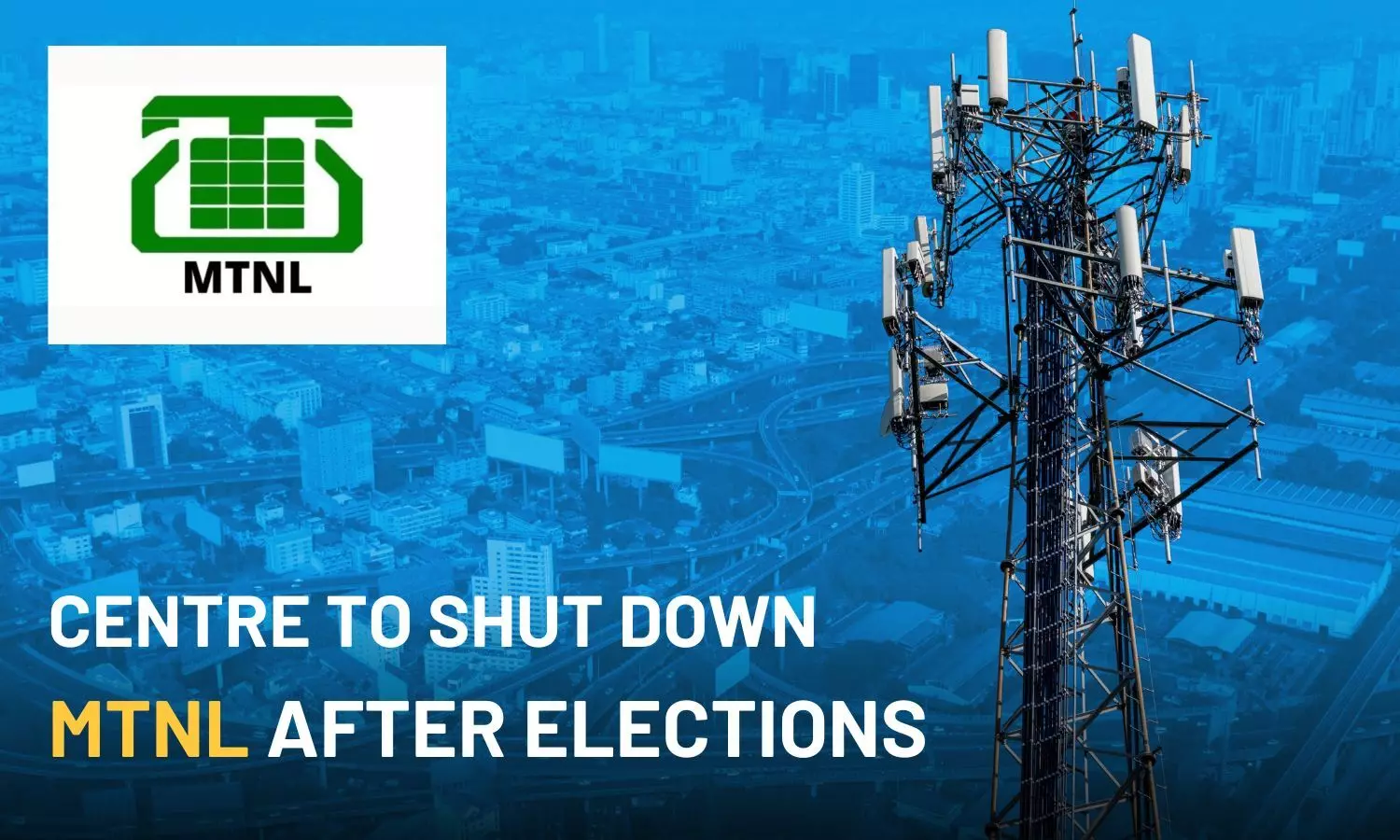Centre to shut down MTNL after elections
DoT in no mood to continue with loss-making State telecom, which operates in Delhi and Mumbai; However, modalities for closure yet to be finalised
image for illustrative purpose

New Delhi: The central government is likely to shut down the loss-making Mahanagar Telephone Nigam Ltd (MTNL) after the general elections. The modalities of the closure are yet to be finalized, but the Department of Telecommunications (DoT) is in no mood to continue with the teleco, which operates in Delhi and Mumbai.
MTNL, a listed company, has been incurring losses for quite some time. In the third quarter of the last fiscal, it reported a net loss of Rs 839 crore. In 2022-23, its loss was Rs 2,910 crore, against Rs 2,602 crore loss in 2021-22.
It may be mentioned here that Air India was also bleeding when it was sold to the Tatas in January 2022. Its accumulated losses were in the region of Rs 70,000 crore. In the case of MTNL, though, the government does seem inclined to privatise it, official sources told Bizz Buzz.
The DoT has veered towards the view that the telecom major should be shut down and its workforce and operations shifted to Bharat Sanchar Nigam Ltd (BSNL). By the way, BSNL is another State-run telecom service provider. While MTNL provides services in Delhi and Mumbai, BSNL does the same in the rest of the country. It may be mentioned here that the government had decided last year to fold up MTNL because of continuous losses, but the decision could not be implemented. The government also wanted to delist MTNL.
In 2019, the government had approved the first revival package for BSNL and MTNL, amounting to Rs 69,000 crore, with the intention to bring stability in BSNL/MTNL. In 2022, it approved second the revival package for both telecos, amounting to Rs 1.64 lakh crore. It included financial support for capital expenditure, viability gap funding for rural landlines, financial support for de-stressing the balance sheet, settlement of AGR dues, merger of BBNL with BSNL, etc. The packages have not helped revive any of the two state-run companies.

